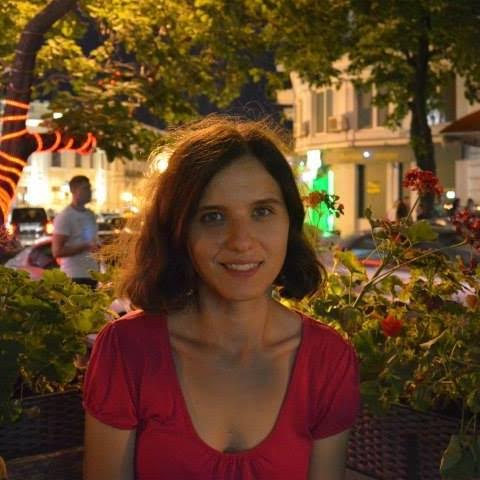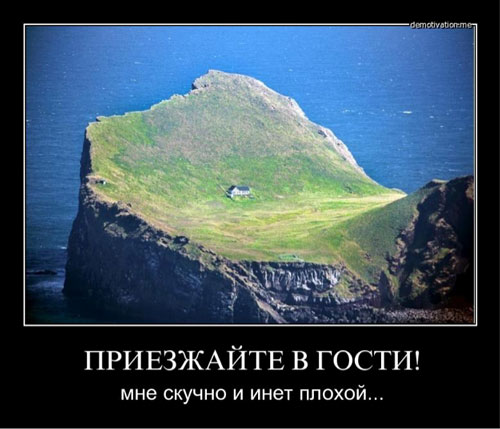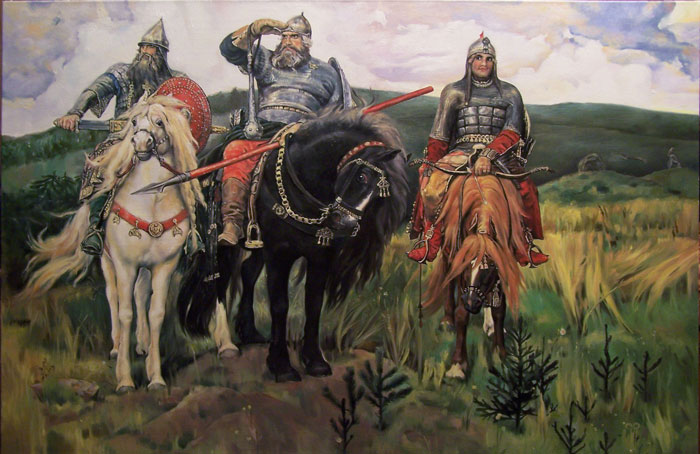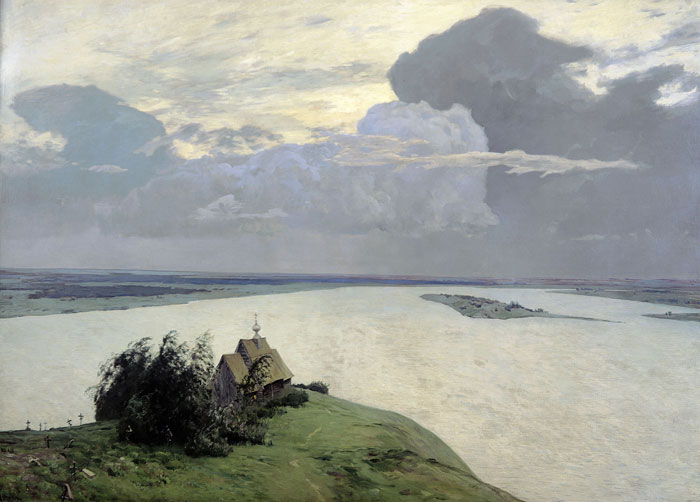In this interview Yulia Amlinskaya answers my questions on the Russian language!
Yulia Amlinskaya is an experienced and enthusiastic Russian teacher. She is originally from Moscow but now lives in Spain. She is the founder of the International Online Russian Language School “Russificate” and she offers online lessons.
If you have any further questions, please leave a comment and Yulia and I will get back to you. 🙂

What are the most common mistakes Russian learners make and how to avoid them?
There are many common mistakes Russian learners make. It always depends on the grammatical and lexical structure of their native languages and on the particularities of their pronunciation.
The most common grammar mistake for almost all Russian learners is the incorrect usage of the perfective and imperfective grammar aspects. The problem here is that the grammar aspects don’t exist in many languages, so the rules of their usage have to be memorised.
For instance, my students find it difficult to understand the difference between the verbs in these sentences:
Кто взял книгу? – Who took the book? (the book is not there; perfective)
Кто брал книгу? – Who took the book? (the book is there, but I know that somebody took it; imperfective)
Actually, the above scenario works only for some verbs, but these verbs are quite common. If the action is already done and you can see the result, the perfective case should be used, but if the action was “cancelled” (i.e. somebody brought the book back), the imperfective aspect should be used.
The most common vocabulary mistake is trying to translate sentences word by word from one’s native language. It is always quite amusing when somebody translates idiomatic expressions and collocations directly from their own language to Russian. Russian learners have to understand that all languages have a different structure, therefore literal translation is impossible.
Some of my English-speaking students translate the collocation “It takes a lot of time” literally into Russian, so they say “Это берёт много времени”, while the correct version is “Это занимает много времени”.
Another quite common mistake is to translate grammar structures literally. For example,
Я видел его переходить улицу (I saw him cross the street). The correct version is: “Я видел, как он переходил улицу“.
Also, some students say как дело instead of как дела. And I have never found out the reason of making this odd mistake!
In terms of pronunciation, a lot of students have difficulty pronouncing the sound “Ы”. Some pronounce is as an “И”, some as an “У”, some as the word “oui” in French. 🙂 In fact, it’s a little tricky to pronounce. A good hint I always suggest to my students is to try to pronounce “И” when smiling.
For some of my students it is also difficult to pronounce the sounds “ж“ and “щ“. I try to help them comparing these sounds with the sounds they can hear in their everyday life. For example, “ж-ж-ж-ж-ж“ is the sound of a beatle and “щ”, of sausages sizzling on a frying pan. 🙂
Explain to me the difference between хоть, хотя, хотя бы, and однако.
(Question by Tom McCormick-Cox)
Here are some examples with explanations:
Дай мне хоть сто рублей. – Give me at least 100 rubles. (Here the meaning of “хоть” is “at least”.)
Он хоть маленький, но очень сильный. – Although he is small, he is very strong. (“Хоть” is the colloquial synonym of “хотя”.)
Хоть сегодня, хоть завтра, а работу закончить нужно. – Either today or tomorrow, the job needs to be done. (Хоть…хоть is a synonym of “или…или”. Here the emphasis is on the necessity of finishing the work.)
Взять хоть меня – разве я не работал? – Take for example myself… as if I didn’t work! Synonym of “for example”;
Хоть бы дождь пошёл. – I wish it rained.
Хотя он и не пришёл, всё равно было весело. – Although he didn’t come, it was fun. (“Хотя” means “although” here.)
Дай мне хотя бы три рубля. – Give me at least three rubles. (synonym of “хоть” in the meaning of “at least”, but less colloquial.)
Однако, он не знал, чем это закончится. – However, he didn’t know how this would end.
Хоть - Хотя - Хотя бы - Однако
To put it short:
Хоть and хотя бы are synonyms in the meaning of “at least”;
Хоть and хотя can both mean “although”, but хоть is more colloquial;
Хоть бы and хотя бы are quite different, the first one is “I wish (something happened) and the second one means “at least”;
Хоть…хоть means “or…or”, but хотя…хотя doesn’t exist!
Хоть (кого?) has the meaning of “for example”, хотя (кого?) doesn’t exist;
Однако means “however” and хотя means “although”.
Explain to me the difference between (оставаться – impf/остаться – perf), (становиться – impf/стать – perf), статься, (останавливаться – impf/ остановиться – perf).
Here are some examples with explanations:
Он остался один в пустой квартире. – He stayed alone in an empty room. (The meaning is “to stay”.)
Оставайся с нами! – Stay with us! (The same as остаться, but the imperfective aspect.)
У нас остался всего один день. – We have only one day left.
К сожалению, после операции он остался глухим. – Unfortunately, after the operation he became deaf. (The meaning is “to become”, always used with the Instrumental case in this meaning, synonym of “стать”.)
Вдруг стало холодно. – Suddenly, it got cold.
Саша стал таким грустным. – Sasha became so sad. (The meaning also is “to become”, but used in the Instrumental case with adjectives and nouns.)
Петя стал инженером. – Petya became an engineer. (The verb стать is used with professions.)
Он стал одеваться. – He started dressing up. (The verb стать with the imperfective infinitive always mean “to start doing smth”.)
Временами ему становилось скучно. – Sometimes, he was feeling bored. (The imperfective aspect of the verb “стать” is “становиться”)
Что с ним сталось? – What happened with him?
Может статься, что мы больше не встретимся. – It can occur that we will not meet again.
Беги! Не останавливайся! – Run. Don’t stop! (The meaning is “to stop”. Be careful and don’t mix up the verbs оставаться-остаться and останавливаться-остановиться; it is quite a common mistake.)
Автобус остановился. – The bus stopped. (Here the verb остановиться is used – perfective aspect of останавливаться)
How to tell the time in the Russian language?
First of all, the expressions used to ask for time are:
- Сколько времени сейчас?
- Который час?
- Не могли бы ли вы сказать, который час?
- У тебя нет часов, сколько сейчас времени?
If we speak about the first part of the hour (for example, 07.23, 09.13, 13.20, etc.) we say the next hour. This “next hour” is an ordinal number and is used in the Genitive case.
07.23 – Двадцать три минуты восьмого;
09.13 – Тринадцать минут десятого;
13.20 – Двадцать минут второго.
If we speak about half past (an hour), we use the same rule
15.30 – полчетвёртого;
17.30 – полшестого;
00.30 – полпервого.
After the half an hour, the structure changes. In this case, we use the preposition “без” with the Genitive case and cardinal numbers:
17.55 – без пяти шесть;
19.40 – без двадцати восемь;
08.45 – без пятнадцати (четверти) девять.
To be precise, we can add the words утра, дня, вечера and ночи. It is quite interesting that night lasts till 04.00 o’clock in the morning in Russia! 🙂
Я заснула в три ночи. – I felt asleep at 3 o’clock at night (the correct English translation would be “in the morning”, of course).
To tell exact hours we use the adverb “ровно”.
Сейчас два часа ровно. – It is exactly two o’clock.
Finally, it is very important to know that we use these structures to tell the time in everyday speech. In formal speech we just say the numbers directly.
13.25 – Тринадцать часов, двадцать пять минут.
14.40 – Четырнадцать часов сорок минут.
Here is the most common ordinal and cardinal numbers used in the Genitive case when telling the time.
Cardinal numbers
Без пяти
Без десяти
Без пятнадцати (без четверти)
Без двадцати
Без двадцати пяти
Ordinal numbers
Первого
Второго
Третьего
Четвёртого
Пятого
Шестого
Седьмого
Восьмого
Девятого
Десятого
Одиннадцатого
Двенадцатого
Give me your best hacks on verbs of motion.
There are two issues about the verbs of motion I would like to mention.
- When used without prefixes, the verbs of motion are both imperfective, but when used with prefixes, the one that meant a movement in two directions, becomes the imperfective verb and the one that meant a movement in just one direction, becomes the perfective verb:Идти-ходить: Both imperfective
Приходить-прийти: The first one is imperfective and the second one, perfective. - Be careful with the verbs плавать and ездить. When used with prefixes, they turn into плывать and езжать:Плавать, but переплывать
Ездить, but заезжать.
I like using different kinds of pictures to illustrate this difference. For example, these:

Не стоит переплывать океаны ради тех, кто не перешагнул бы ради тебя и через лужу. – It is not worth crossing oceans for those who would not be able to cross a puddle for you.

Приезжайте в гости! мне скучно и инет плохой… – Come visit me! I am bored and I have a bad internet connection… 🙂
Explain to me the difference between the verbs учить-выучить, изучать and учить-научить
There are two different pairs of verbs, учить-выучить and учить-научить. The first one means “to learn something” and is used with the Accusative case and the second pair means “to teach something to somebody” and is used with the Accusative and the Dative case.
Я учу глаголы. – I am learning the verbs.
Он учит мальчика немецкому языку. – He is teaching German to the boy.
Я уже выучил глаголы. – I have already learned the verbs.
Он научил мальчика немецкому языку. – He taught German to the boy (The boy knows how to speak it already).
The main difference between the verbs учить-выучить and изучать-изучить is that учить-выучить is used with small pieces of material like formulas, words, verbs, etc. and “изучать” is used with school and university subjects.
Я учил слова. – I was learning the words.
Я изучала русский язык в школе. – I learned Russian at school.
However, sometimes we use учить instead of изучать in everyday speech, because изучать sounds quite formal.
Я учу русский язык. – I am learning Russian.
Apart from the big classic representatives of the Russian literature like Dostoevsky, Tolstoy etc., can you recommend a few works that are easy to read for Russian learners?
It depends on the level of the student. I think students can start reading Russian books in original when they reach B2 level.
It is much better to read short stories than novels and it is also easier to read modern literature than Russian classics because of the vocabulary issues.
My students like reading and discussing:
- Сергей Довлатов, «Наши», «Заповедник»;
- Людмила Улицкая, «Рассказы»
- Борис Акунин, «Левиафан», «Турецкий гамбит»;
- Татьяна Толстая, «Ночь»
Give me two songs that a Russian learner should listen!
In my opinion, the most important Russian songs for foreigners are the birthday song of the crocodile Gena (“Пусть бегут неуклюже…”) and “The night is dark” (“Тёмная ночь”) because they reflect some crucial aspects of the Russian culture, they are both known by 100% of the Russian population. The first one shows our birthday traditions and the second one is one of the most famous songs of the Great Patriotic War.
How can I stay motivated when learning Russian?
Russian is a hard language to learn, that is true. To stay motivated, try to immerse in the Russian culture, try to find something interesting every day: a song, a quote by a Russian writer or famous person, a historical fact, a short film.
Here are some useful resources I use in my lessons to keep my students motivated:
- Songs from Russian cartoons and Russian films;
- Russian jokes;
- Famous quotes;
- Historical facts;
- Short funny films.
If you are learning Russian with a teacher, it is very important for your teacher to be enthusiastic about their job and give interesting homeworks, use funny videos during the lessons. So, you should also find a good teacher and not the one who just corrects homeworks and yawns!
Show me and explain two pictures that reveal the Russian an element of the Russian culture.
The first picture is the painting by Viktor Vasnetsov called “Богатыри” (“Bogatyrs”):

Bogatyrs are is the stock characters in medieval Russian legends. The most notable bogatyrs were the trio of Alyosha Popovich, Dobrynya Nikitich and Ilya Muromets you can see in the picture. Each of them had a certain character trait: Alyosha Popovich for his wits, Dobrynya Nikitich for his courage, and Ilya Muromets for his physical and spiritual power and integrity. They say that the bogatyrs themselves were often based on real people.
This image is an important part of the Russian culture, many Russians associate the word “богатырь” with this painting. “Bogatyr” also means “a strong man” in the Russian language.
The second picture is the Isaac Levitan’s painting “Над вечным покоем” (“Above the Eternal Peace”).

It is one of the most well-known paintings of the Russian scenery. It shows huge spaces filled with air and water, typical of Russian landscape. Russian nature has always been an important part of the “mysterious Russian soul”, Russian people have always found peace and relief in the nature, even in the most turbulent times. It is widely reflected in Isaac Levitan’s paintings and in Sergey Esenin’s poems.

Dear Angelos, Thanks for your efforts. For me maintaining motivation for Russian study means monitoring how activities affect me . Although I enjoy grammar, I find that too much can get discouraging. I need the right dose. If I try to read a book where I have to look up words too often, that is discouraging. Listening to dialogs of increasing complexity and understanding is fun- that energizes motivation. Speaking to natives and being understood even though you know you have made some mistakes is also fun.( most native listeners I have met or contacted on skype have been positive and encouraging. A critical listener can be discouraging. I have met a few. ) Listening to many of your youtube presentations has been good for motivation.
Thanks for these! I would have a question for Yulia (or whomever else you might be submitting to your ruthless questioning for us next:-) concerning russian accents – that is, various local accents within Russia. Is it possible to make a brief summary how Russian is spoken in the various corners of the country (and possibly Ukraine, Belarus, and so on)? Perhaps this would be best to explain on video nevertheles. Also, from which area should a teacher/conversational partner be for a student to pick up the right and sort of universal accent? So far I hear a lot about St. Petersburg being the golden standard in terms of a clean russian accent (the equivalent of Oxford English) but people from Moscow and Petersburg never seem to agree on this, naturally 🙂 Thank you!
Hey Adam, that’s a good topic to explore here in Explore Russian. I’ll definitely put accents under the microscope at some point and will definitely mention you!!! Thanks for the idea. 🙂
Thank Angelo! This is a little advanced for me, but it is very useful. The website is great!
Saludos
Jesus
You’ll soon get there! Thank you Jesus! 😉
Thanks Angelos as always much appreciated.
You’re very welcome Sir. Best, Angelos
Thank you Angelos and Yulia for all your efforts .
Hey Angelos I’m still finding a difficulties of learning Russian but I’m going to keep trying ,. Thanks again for all your help
Spasibo bolshoe for this! I’m pretty new to Explore Russian and am enthralled by all of your posts and videos!!! 😀 It’s really helpful to have so many example sentences (especially on your other post about perfective / imperfective verbs in Russian… still working through that article.) Thank you so much for all of the interviews and advice here!
Thank you very much Katherine!!! Just had a look at streetrusian.com!! Great!! Guys follow STREETRUSSIAN.COM!!!!!!!
Спасибо, Angleos! 🙂 Can’t wait to learn more Russian with you!